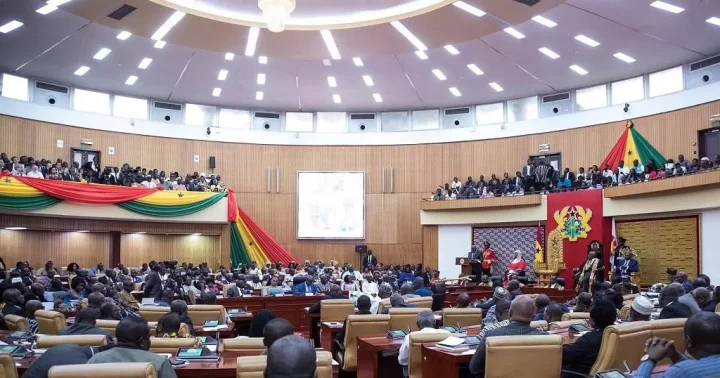- The Ghanaian lawmakers have approved the first batch of a $1 billion loan target which the Government hopes to seal before the end of July.
- The first batch of $750 million will be borrowed from the Afreximbank, while the remaining batch of $250 million is expected from some international lenders.
- Ghana urgently needs the loans to finance its 2022 national budget.
President Nana Akufo-Addo’s government has just scaled through a major hurdle in its quest to raise $1 billion (before the end of this month) for budget financing. That’s because the country’s parliament has approved a plan to borrow $750 million from the the African Export-Import Bank (Afreximbank).
Ikeanumba Africa understands that the $750 million facility is the first batch of the $1 billion loan target. The finance committee Chairman at the Parliament of Ghana, Kwaku Kwarteng, explained that lawmakers are still studying the conditions of the second batch of the loan; a $250 facility that is expected to be borrowed from other international lenders.
According to Bloomberg, the loan would help Ghana to cut down on domestic borrowing. Most importantly, it would help the West African country’s currency, the cedi, which has lost as much as 25.6% of its value in 2022 alone.
Ultimately, the proceeds from the loans would also help Ghana to better manage its recent fiscal challenges, which started after the country was shut off from the international capital market due to poor credit ratings.
Amid these fiscal challenges, Ghana was recently forced to reverse its policy decision not to seek loan from the International Monetary Fund (IMF). It is now expecting to receive a separate $1.5 billion loan from the IMF, even as it works with the multilateral lender on a programme aimed at restoring the country’s macroeconomic and debt stability.
Do note that factors such as the COVID-19 pandemic, Russia’s war on Ukraine and a recent clean-up of the banking sector contributed to pushing the country’s debt ratio to 78% in Q1 2022, up from 62.5%


